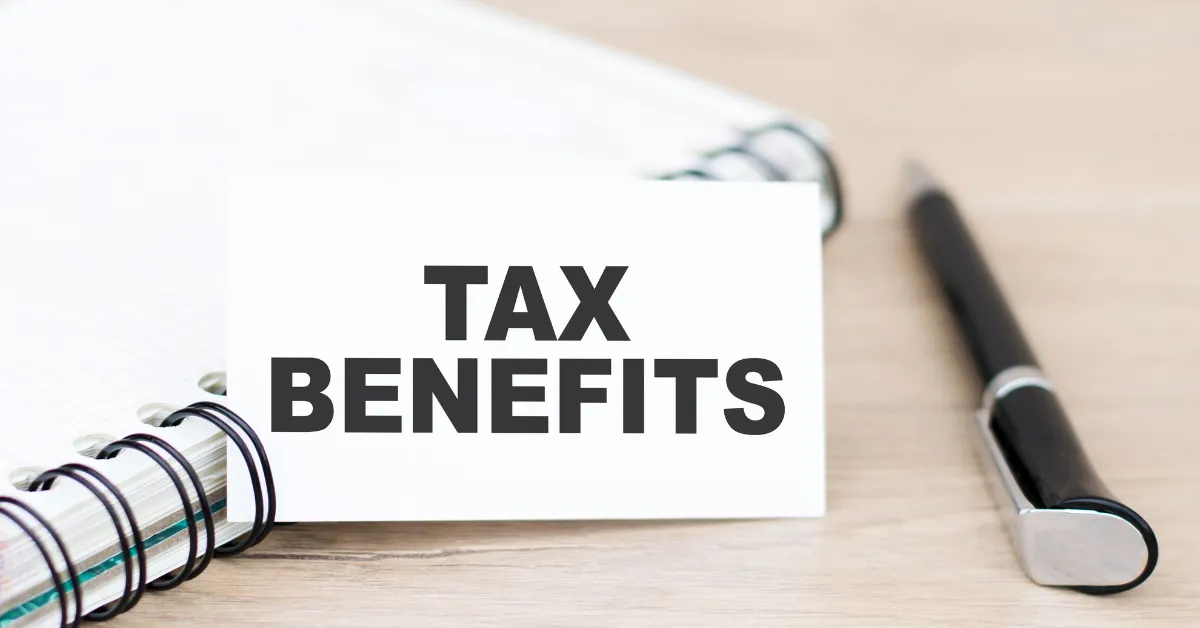How Long to Amortize Closing Costs on Rental Property: Tips!
Closing costs on rental property are typically amortized over the asset’s useful life, which is generally 27.5 years for residential property. The IRS allows investors to spread out the expense of these fees over this period for tax purposes.
Investing in rental property involves several upfront costs, one of which includes closing costs. These costs encompass a variety of fees associated with finalizing a real estate transaction.
Amortizing these costs effectively reduces taxable income over the life of the property, providing a prolonged tax relief for the investor.
Understanding this aspect of property investment is essential in property management and financial planning. Efficiently handling the amortization of closing costs maximizes the benefits investors receive from their rental properties.
It’s an integral part of property cost analysis that savvy investors should master to ensure the profitability of their rental endeavors.

Grasping Amortization Of Closing Costs
Understanding the amortization of closing costs is essential for rental property investors. By spreading these expenses over the life of the property, investors ensure the financials make sense.
Now, dive into the specifics of how this process works and why it matters in the real estate world.
Breaking Down Amortization
Amortization is like a financial roadmap. It lays out the payment schedule for any costs over time. With rental properties, investors can spread the closing costs over the asset’s useful life. This does two important things:
- Controls the annual financial impact by dividing substantial one-time fees into manageable portions.
- Reflects the actual use of the property by aligning costs with rental income periods.
The IRS sets guidelines on the period for amortization. Typically, it spans 27.5 years for residential property. Yet, special cases may alter this timeframe. The amortization period must align with IRS rules to ensure compliance and minimize tax issues.
The Role Of Closing Costs In Real Estate
Closing costs cover fees related to finalizing a property transaction. These can be hefty, including:
| Fee Type | Common Charges |
| Loan Origination | Percentage of the loan amount |
| Title Search | Ensures clean property title |
| Inspection Fees | Assesses property condition |
| Legal Fees | Pays for attorney services |
For landlords, rolling these costs into the property’s monthly expenses makes financial planning smoother. Each month, a fraction of the closing costs becomes part of the property’s operating expenses. This approach aligns the investment cost with income generation.
Assessing Rental Property Closing Costs
Understanding the closing costs associated with your rental property is key to financial planning. These costs can affect how long to amortize them. Let’s break down these expenses.
Typical Expenses At Closing
Several expenses arise when closing on a rental property. It’s important to identify each one to plan effectively.
- Loan Origination Fees: Charges from lenders to create the loan.
- Title Search and Insurance: Costs for verifying the property’s title and insurance to protect against claims.
- Appraisal Fees: Professional assessments of the property’s worth.
- Inspection Costs: Payments for property examinations to uncover potential issues.
- Attorney Fees: Legal costs for ensuring the legality of the transaction.
- Recording Fees: Government charges to record the property transaction.
- Transfer Taxes: State or local taxes on the transfer of property.
Distinguishing Between Deductible And Capitalize Expenses
Categorizing closing costs is crucial for tax purposes.
| Expense Type | Deductible | Capitalize |
| Interest | Yes | No |
| Points | Varies | Varies |
| Property Taxes | Yes | No |
| Depreciation | No | Yes |
Deductible expenses reduce your taxable income for the year. On the other hand, capitalize expenses are added to the property’s cost basis, spreading their deduction over several years.
Amortization Period For Rental Property
Welcome to the world of smart real estate investment where understanding your finances is as important as the property itself.
A key piece of that financial puzzle for landlords is figuring out how long it takes to amortize closing costs on rental property. Let’s dive in!
Irs Regulations On Amortization
The IRS sets clear rules for rental property investors. Closing costs must be spread out over the asset’s life.
This period is called the amortization period. You can’t deduct these costs all at once. Instead, you deduct them in small parts over several years.
- Capital expenditures are typically amortized.
- IRS uses a 27.5 year period for residential property.
- Commercial property is usually 39 years.
- Form 4562 is where you report this on your taxes.
Computing The Amortization Schedule
An amortization schedule helps you see how costs spread over time. You will see the monthly expense for each year.
To compute the schedule:
- Identify total closing costs.
- Find out which costs are eligible for amortization.
- Divide those costs by the correct number of years.
This gives you the annual amortization expense. You can then break this down by month.
Let’s look at an example. Say your eligible closing costs are $5,500.
| Property Type | Amortization Period | Annual Expense | Monthly Expense |
| Residential | 27.5 Years | $200 | $16.67 |
| Commercial | 39 Years | $141.03 | $11.75 |
A calculator or financial software can help with more complex situations. Always confirm with a tax professional. Each property is different, and tax laws change.
Strategies To Maximize Tax Benefits

Understanding Strategies to Maximize Tax Benefits can save rental property owners money. Key to this is knowing how long to amortize closing costs.
The IRS allows landlords to spread out certain expenses. This can lower taxable income every year. It is essential to optimize deductions and time expense recognition right.
Optimizing Deductions
Rental property owners must always aim to optimize deductions. Closing costs like appraisal fees or title insurance can be amortized. This means spreading the costs over the property’s useful life.
(IRS Publication 527 outlines specifics). Maximizing deductions reduces taxable income. Below are key points to consider:
- Identify amortizable closing costs according to IRS guidelines.
- Separate deductible costs from capital improvements. This can impact your annual depreciation and amortization calculations.
- Use IRS-specified depreciation schedules for various expenses.
- Stay updated on tax laws. They may affect deductions for rental properties.
Timing Of Expense Recognition
Recognizing expenses at the right time is crucial. It is balancing between current and future tax benefits. Here are strategic steps to ensure timely recognition:
- Begin amortization when the property is available for rent.
- Match expenses with rental income in the same tax year for consistent accounting.
- Plan major expenditures around the occupancy schedule to optimize cash flow.
- Consult a tax professional for guidance on complex situations.
To sum up, smart strategies in amortizing closing costs can lead to significant tax savings. Focus on amortization periods and timing.
Common Mistakes To Avoid
Investing in rental property involves many steps. It is easy to make mistakes. Knowing common pitfalls can save you money and headaches. Let’s dive into some of the missteps people often make with amortizing closing costs and how to steer clear of them.
Inaccurate Amortization Calculations
Amortizing closing costs on a rental property spreads the expenses over the life of the property. Errors in these calculations can lead to incorrect tax filings. Follow these tips to avoid miscalculation:
- Use the correct time frame. The IRS sets specific rules for the amortization period. Stick to these guidelines.
- Apply the right method. Usually, the straight-line method is the standard for amortization. Confirm it’s the appropriate one for your property.
- Consult with a professional. Tax professionals or software can keep calculations on track. Don’t rely solely on guesswork.
Overlooking Eligible Closing Costs
Not all closing costs qualify for amortization, but many do. Missing out on eligible costs reduces your tax benefits:
| Eligible Costs | Non-Eligible Costs |
| Legal fees | Property insurance |
| Recording fees | Renovation expenses |
| Title insurance | Utilities setup costs |
To make the most of your rental investment, review the IRS guidelines or speak to a tax advisor. This can ensure you are not missing any deductible expenses.
Pay attention to detail. Rushing through the process might cause eligible costs to slip through. Consider the following:
- Double-check your closing statement.
- Look for fees related to financing and services.
- Keep meticulous records. They prove invaluable during tax season.
Expert Tips For Property Investors
Welcome to the expert tips segment for property investors. Understanding the intricacies of rental property investments is key. Knowing how to handle closing costs can maximize your financial outcomes.
Let’s dive into professional strategies that help determine the proper amortization period for rental property closing costs.
Consulting With Tax Professionals
Seeking advice from tax experts is crucial for property investors. They help navigate tax regulations related to rental properties.
- Identify tax deductions and credits associated with closing costs.
- Ensure compliance with the IRS guidelines on rental property expenses.
- Develop a personalized strategy that aligns with your investment goals.
Engage with professionals yearly. Tax laws often change. They can affect the amortization of closing costs on rental properties.
Leveraging Software For Amortization
Property investors benefit from amortization software. It streamlines cost management over time. Here’s how software aids in this aspect:
- Automate calculations for the amortization of closing costs.
- Track payments accurately throughout the amortization period.
- Generate reports for better financial planning and assessment.
Choose user-friendly software with excellent customer support. It should integrate seamlessly into your existing financial systems.
Frequently Asked Questions On How Long To Amortize Closing Costs On Rental Property
What Closing Costs Are Amortizable?
Amortizable closing costs include prepaid interest, mortgage insurance premiums, and certain real estate taxes.
How Long To Amortize Refinance Costs On Rental Property?
Typically, refinance costs on a rental property are amortized over the life of the loan, which is usually 15 to 30 years.
How Do You Amortize A Rental Property?
Amortize a rental property by deducting its cost over its useful life, as set by the IRS, typically 27. 5 years for residential property. Calculate annual depreciation and claim it on your tax returns.
How Long Do You Depreciate Capital Improvements On A Rental Property?
Capital improvements on a rental property typically depreciate over 27. 5 years, the standard lifespan for residential real estate as defined by the IRS.
Conclusion
Understanding the amortization of closing costs on rental property is crucial for savvy investors. It helps in planning, budgeting, and maximizing tax benefits.
Every property varies, so crunch those numbers to ensure wise financial decisions. Remember, patience often equals profit in real estate investments.
Keep this guide handy for your next purchase.
Reference:
https://www.consumerfinance.gov/owning-a-home/closing-disclosure/